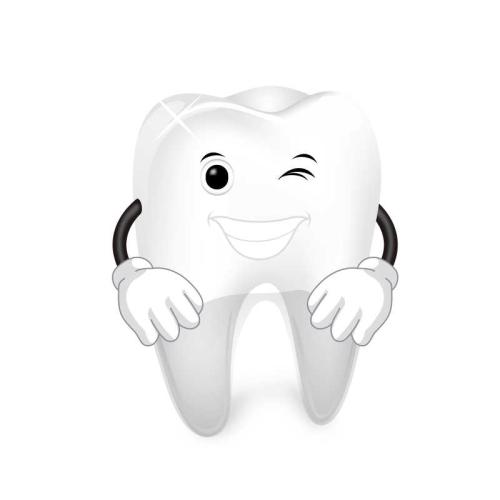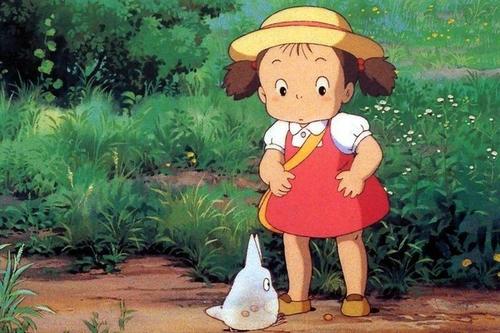动物医学毕业论文怎么写呢?
 一成一旅
一成一旅 鬼冲凉
鬼冲凉
毕业论文格式 1、论文题目:要求准确、简练、醒目、新颖。 2、目录:目录是论文中主要段落的简表。(短篇论文不必列目录) 3、提要:是文章主要内容的摘录,要求短、精、完整。字数少可几十字,多不超过三百字为宜。 4、关键词或主题词:关键词是从论文的题名、提要和正文中选取出来的,是对表述论文的中心内容有实质意义的词汇。关键词是用作机系统标引论文内容特征的词语,便于信息系统汇集,以供读者检索。每篇论文一般选取3-8个词汇作为关键词,另起一行,排在“提要”的左下方。 主题词是经过规范化的词,在确定主题词时,要对论文进行主题,依照标引和组配规则转换成主题词表中的规范词语。 5、论文正文: (1)引言:引言又称前言、序言和导言,用在论文的开头。引言一般要概括地写出作者意图,说明选题的目的和意义, 并指出论文写作的范围。引言要短小精悍、紧扣主题。 〈2)论文正文:正文是论文的主体,正文应包括论点、论据、论证过程和结论。主体部分包括以下内容: a.提出-论点; b.分析问题-论据和论证; c.解决问题-论证与步骤; d.结论。 6、一篇论文的参考文献是将论文在和写作中可参考或引证的主要文献资料,列于论文的末尾。参考文献应另起一页,标注方式按《GB7714-87文后参考文献著录规则》进行。 中文:标题--作者--出版物信息(版地、版者、版期):作者--标题--出版物信息所列参考文献的要求是: (1)所列参考文献应是正式出版物,以便读者考证。 (2)所列举的参考文献要标明序号、著作或文章的标题、作者、出版物信息。
急急急!!大家帮忙找几个好写的动物医学的毕业论文题目
 松松散散
松松散散 赫克托
赫克托
龟的影像学和血液学研究 摘要:龟鳖以颈和四肢的伸缩运动而产生呼吸,先呼气,后吸气,这种特殊的呼吸方式叫做“咽气式”呼吸,简称龟吸。应用现代先进的医疗诊断技术,我们对1只缅甸陆龟进行螺旋CT、磁共振成像(MRI)和磁共振血管造影(MRA)检查,发现龟背甲下方左右各有1个大气囊,腹甲上面的软组织有胸主血管和腹主血管。影像学研究和解剖对比分析,我们发现龟肺发育不良是咽气式龟吸的基础,不健全的龟肺决定了龟的新陈代谢必然缓慢。对龟的血液成份进行定性定量测定,发现龟的红细胞大而有核,中性粒细胞和血小板缺如,这是龟血的奇异现象,我们获得的宝贵资料,对探索乌龟新陈代谢缓慢和长寿机理,提出了新的课题。 关键词:龟螺旋CT MRI 医学检验 应有螺旋CT、磁共振成像(MRI)和磁共振血管造影(MRA)的先进医疗诊断技术,我们对1只缅甸陆龟进行影像学检查,龟的呼吸系统做了影像学研究和解剖对比分析,并对龟的血液成份进行了测定,资料报道如下,供同道们参考分析。 1、科研目的: 了解龟体软组织结构,对龟的呼吸系统进行影像学研究和解剖对比分析,探索乌龟新陈代谢缓慢的机理。 2、实验材料: 缅甸陆龟又名象龟,俗名Elongated tortoise(拉丁学名Indotestudo elongata),属龟鳖目、曲颈龟亚目、陆龟科、缅甸陆龟属。实验象龟体重3000g,头项部淡黄色,有对称鳞片,吻印,上喙略勾曲,鼻孔粉红色,背腹甲被覆角质盾片完整无损。背甲隆起光滑平坦…… http://www.51papers.com/lw/30/wz8525.htm
关于兽医方面的毕业论文
 处刑者
处刑者 触动爱
触动爱
狗狗健康的六个警报 小狗不会说话,不会写字,没办法像我们一样,倾诉病痛和烦恼。目前我国的宠物市场还很落后,环境脏乱、嘈杂,很多狗贩子缺乏必要的职业道德和专业知识,有的为了使小狗保持所谓的活泼,不给它吃东西;有的为了把普通小狗伪造成名贵品种,染色、剃毛……用来繁殖的种狗往往没有免疫,健康状况极差。绝大多数幼犬进入家庭之前,在如此恶劣的环境里遭到传染病的威胁和人为的虐待。它的生命安全都靠新家长仔细观察和体贴照顾。 天真活泼、无忧无虑是小动物的天性,能吃、贪玩不等于它没有病。加上很多病有一定的潜伏期,当您发现小狗出现很明显的症状时,病情往往已经非常严重了。因此,一旦发现小狗不对劲,就应该立即就医,并在它健康时注射疫苗,保证它一生的安全。为了给治疗争取时间和机会,请您留意以下六个症状: A 警报一:是精神不振,身体软弱无力,动作迟钝,尾部微微震动甚至不动、下垂;愁容满面,没有朝气。 A 警报二:是鼻部干燥,流鼻水。这是发烧的症状。不过,狗狗睡觉时鼻子是会发干的,这是正常现象,不必担心。 A 警报三:是排便不正常,有下痢、便秘现象,粪便有时稀得像水,有时又坚硬如石块。健康的小狗,每日排便两次左右,大便颜色因食物而异,通常为黑色或黄褐色,而且应该软硬适中。 A 警报四:是食欲不振或食欲迅速降低。如果小狗吃了脏东西或不能消化的异物,胃部功能会反常,出现不肯吃饭或呕吐现象。 A 警报五:是眼睛怕光、有眼屎,甚至结膜充血。 A 警报六:是体温升高。健康的小狗体温约为38.5℃,幼犬体温稍高。一般说来,犬只早晨的体温低,中午至傍晚的体温高,约差0.5℃。把我们用的体温表夹在小狗的大腿根5分钟,体温高于39℃就是反常。 另外若有咳嗽、小便困难、耳部瘙痒、乱吃异物,把屁股在地面磨擦等反常现象,也是疾病的反映,万万不可忽视、拖延。 健康的狗狗才是快乐的宠物 健康的狗狗才是快乐的宠物,而快乐的狗狗才是忠诚而可爱的伴侣。本文所提供的使用指南涉及保持狗狗健康而需要了解的基本知识。文章强调的是预防,而不是解释具体治疗措施。 驱除寄生虫 寄生虫会影响狗狗的健康。虽然不会有明显的症状,但是定期给宠物驱除寄生虫会使它们生活得更好。 蛔虫的特征 蛔虫体长约5-15厘米,呈浅白色或米色,形状似弹簧。蛔虫可能引起幼小动物呕吐和腹泻,但对成年宠物很少产生显著症状。 绦虫的特征 狗体内的绦虫通常由跳蚤传染。最常见的绦虫长约7毫米,呈白色或乳白色,可在宠物的肛门或粪便中发现。 防治特征 成年动物可每隔3-6个月服用一次去蛔虫药,而幼小动物在断奶前后都应更经常地服用。如在宠物身上发现绦虫,在治疗前首先应清除跳蚤。驱除蛔虫和绦虫的药剂在兽医站、药店或宠物商店都可买到。应严格按照剂量说明服用,尤其应注意片剂的含量。有疑问时最好请教兽医或药剂师。 犬的致命疾病 下列疾病很难治疗,而且费用昂贵,可导致死亡。接种疫苗事宜需请教兽医。 瘟热病、肝炎、钩端螺旋体病、细小病毒(可引起急性疾病及腹泻)、哮喘和副流感病毒等。 跳蚤—瘙痒的源泉 跳蚤不仅使宠物皮肤瘙痒,而且还传染疾病。跳蚤的盯咬也会使人爪挠不停。 孳生跳蚤的部位 在你梳理宠物皮毛时注意背部是否有跳蚤或跳蚤屎。跳蚤为桃红色,它们不停地蠕动或跳跃。深黑色小颗粒不是跳蚤蛋,而是跳蚤粪。 防止跳蚤引起的瘙痒 可使用性能良好的喷剂、粉剂、灭蚤颈圈或新近推出的液体杀虫剂。这些药剂在各个兽医站、药店和宠物商店都出售,使用前应仔细阅读说明。经常清洗宠物的铺盖。在宠物的睡铺、座椅及其周围地毯和护板上洒药剂,也不要忘记在吸尘器的尘土收集袋内洒药剂。这些措施可使宠物和家人免受跳蚤之苦。 阉割 你如不想让宠物生儿育女,应给以阉割。一次简单的手术就可免除宠物的性骚动。如果不对狗狗进行这种手术,就是不存在生育的危险也会出现一系列麻烦。发情的母犬会产生分泌液,如不予配对就会心情忧郁。阉割的费用不多。手术安全,不同年龄的宠物都可做。手术后的宠物不会发现任何变化。阉割不会改变狗狗的心情。 关于犬疫苗,很多狗主人还有一些误区。比如,有人认为我家小狗很少出门,或根本不出门,不会被传染。其实,很多病毒是小狗出生时从母体带来的,一旦抵抗力降低就会爆发,所以即使不出门的小狗也可能生病。还有人认为,从前养狗,哪儿有什么疫苗、狗粮,不也照样养得好好的?其实,随着狗数量的剧烈上升,传染病也在迅速发展。不是如今的狗娇贵了,而是狗们所处的大环境变得复杂和危险了。 刚从狗贩子手里买来的小狗,抵抗力弱、环境恶劣、护理不当,身体基础很差。到家后,应先到可靠的动物医院注射血清,增强抵抗力。血清的有效时间只有7天,这7天里不要让它出门、不要洗澡、狗和主人都不要接触其他的狗。利用这段时间,观察它的食欲、大小便和体温、精神状态、鼻头是否湿润等,把体温表夹在大腿内侧无毛处5分钟,39度以上即是发烧。出现发烧、流鼻涕、咳嗽、拉稀等症状的小狗应立即就医,决不能拖延耽搁。 如果您的小狗没有任何异常,活泼健康,那么恭喜您,在它满50天的时候,您可以带它去医院注射第一针进口犬六联疫苗。这种疫苗可预防六种犬的急性传染病,包括:犬瘟热病、犬细小病毒病、犬钩端螺旋体病、传染性肝炎、传染性支气管炎和副流感病。第一年要注射三次,每次间隔21天,以后每年注射1次,进口的犬六联苗质量好,保护率高。 在您的小狗满三个月时,应该为它注射狂犬病疫苗,每年1次。接种狂犬病疫苗是养犬者的义务,也是养犬法规的规定条例内容,必须执行接种。 犬病毒不是一般的消毒用品能杀死的,犬细小病毒尤其顽固。如果您的家里曾有患传染病的小狗,无论家里怎么消毒,半年内都不该再养没有经过免疫的幼犬。请不要急于用另一只没有打过全部疫苗的小狗来弥补自己感情上的损失,这种自私的感情会害了它。 在您下一年带它注射疫苗时,应比上一年提前约一个月左右,避免在上一针疫苗即将失效时,发生意外。 注射疫苗时,为了避免遭到不良医院的坑害,请您监督以下几点: 1.注射前应给小狗量体温,在非常健康的状态下才能注射疫苗; 2.检查疫苗是否过期、是否进口、护士是否将全部药液注射了; 3.医院应提供免疫记录本,并提示您下次注射的时间。 4.北京地区每一针的价格约60元。 总之,按时注射质量可靠的疫苗,是小狗生命安全的基本保障,也是每一个狗主人起码的责任。自己找 没空
急需畜牧兽医毕业论文4000字,
 或谓之生
或谓之生 而目冲然
而目冲然
1、题目:题目应简洁、明确、有概括性,字数不宜超过20个字(不同院校可能要求不同)。本专科毕业论文一般无需单独的题目页,硕博士毕业论文一般需要单独的题目页,展示院校、指导教师、答辩时间等信息。英文部分一般需要使用Times New Roman字体。2、版权声明:一般而言,硕士与博士研究生毕业论文内均需在正文前附版权声明,独立成页。个别本科毕业论文也有此项。3、摘要:要有高度的概括力,语言精练、明确,中文摘要约100—200字(不同院校可能要求不同)。4、关键词:从论文标题或正文中挑选3~5个(不同院校可能要求不同)最能表达主要内容的词作为关键词。关键词之间需要用分号或逗号分开。5、目录:写出目录,标明页码。正文各一级二级标题(根据实际情况,也可以标注更低级标题)、参考文献、附录、致谢等。6、正文:专科毕业论文正文字数一般应在3000字以上,本科文学学士毕业论文通常要求8000字以上,硕士论文可能要求在3万字以上(不同院校可能要求不同)。
兽医专业毕业论文如何选题?
 气韵
气韵 大狂魔
大狂魔
兽医专业毕业论文可以写具体的某个家禽病症。我写的是《H7N9禽流感疫情对东莞家禽经营环节公共卫生安全的影响及思考》,当时也是没数据,还是学长给的雅文网,很快就帮忙搞定了 从农业部设立兽医局看我国兽医体制改革为“兽医卫生”正名中国农业文摘—兽医分册著录情况亟待建立中兽医史学喜读《民间兽医本草》甘肃省中兽医经验交流会在兰召开河北省中兽医研究工作协作会议农牧渔业部座谈兽医教育和实验动物工作我国执业兽医的现状与发展——农业部兽医局张仲秋局长在第二届中国兽医大会上的讲话改革创新 通力合作 推进兽医行业健康发展北京市执业兽医管理现状及措施兽医体制改革的方向和措施余姚市禽类养殖人员人禽流感相关知识知晓情况分析暴发高致病禽流感疫区鸟类禽流感的血清学调查禽流感H5N1亚型病毒感染恒河猴模型的建立及禽流感发病机制初探养禽与禽病防治教学结构模式初探禽霍乱弱毒菌苗紧急预防接种的免疫效果及禽霍乱的综合防制特种经济禽类饲养管理技术——第一讲 国内外特禽饲养业动态2010—2012年南宁市职业暴露人群血清学和环境高致病性禽流感监测分析2009—2011年湖南省禽流感外环境监测结果分析农村散养家禽禽流感防治要点北京市成年人群对人感染H7N9禽流感认知的快速调查人感染H5N1禽流感的流行与防治禽流感防制进展安徽省2008年预防人禽流感健康教育效果评价珠江三角洲活禽市场外环境甲型流感病毒核酸监测禽流感警钟再响 防控工作任重道远哈尔滨地区高致病性禽流感免疫效果的监测与评估某部加强高致病性禽流感防控工作的做法禽流感给我们的启示北京市城区居民对禽流感认知态度的调查人禽流感的致病性及应对策略禽流感流行特点及其未来控制方略对禽流感的反思及养殖业工厂化的探讨预防高致病性禽流感你的兽医专业论文准备往什么方向写,选题老师审核通过了没,有没有列个大纲让老师看一下写作方向? 老师有没有和你说论文往哪个方向写比较好?写论文之前,一定要写个大纲,这样老师,好确定了框架,避免以后论文修改过程中出现大改的情况!!学校的格式要求、写作规范要注意,否则很可能发回来重新改,你要还有什么不明白或不懂可以问我,希望你能够顺利毕业,迈向新的人生。论文选题的具体方法有哪些在选题的方向确定以后,还要经过一定的调查和研究,来进一步确定选题的范围,以至最后选定具体题目。下面介绍两种常见的选题方法。1、浏览捕捉法 这种方法就是通过对占有的文献资料快速地、大量地阅读,在比较中来确定题目的方法。浏览捕捉法一般可按以下步骤进行: 第一步、广泛地浏览资料。在浏览中要注意勤作笔录,随时记下资料的纲目,记下资料中对自己影响最深刻的观点、论据、论证方法等,记下脑海中涌现的点滴体会。 第二步、是将阅读所得到的方方面面的内容,进行分类、排列、组合,从中寻找问题、发现问题,材料可按纲目分类。 第三步、将自己在研究中的体会与资料分别加以比较,找出哪些体会在资料中没有或部分没有。 2、追溯验证法 这是一种先有拟想,然后再通过阅读资料加以验证来确定选题的方法。追溯可从以下几方面考虑: 第一步、看自己的“拟想”是否对别人的观点有补充作用,自己的“拟想”别人没有论及或者论及得较少。 第二步、如果自己的“拟想”虽然别人还没有谈到,但自己尚缺乏足够的理由来加以论证,考虑到写作时间的限制,那就应该中止,再作重新构思。 第三步、看“拟想”是否与别人重复。如果自己的想法与别人完全一样,就应马上改变“拟想”,再作考虑;如果自己的想法只是部分的与别人的研究成果重复,就应再缩小范围,在非重复方面深入研究。 第四步、要善于捕捉一闪之念,抓住不放,深入研究。在阅读文献资料或调查研究中,有时会突然产生一些思想火花。
本人马上也写毕业论文了,还需要一篇外文文献以及翻译,我学的是动物医学专业,需要这方面的文献资料
 蒙塔纳
蒙塔纳 南无
南无
Based on the analysis of the traditional proction animal medicine majors the problems in practice teaching, practice teaching reform deepening proction introced the measures to improve the professional proction internship effect.Keywords animal medicine; Proction practice; Teaching reformArticle analyzed AbstractThe move in different showing benefit life-time veterinary way in reading, deepen reform introced to move in exactly a practical proction, so as to have different try of the reading.Key specific wordsveterinary way; Different proction; We reformProction practice is an important practical animal medicine professional teaching contents. Through proction practice, can achieve consolidated the knowledge, cultivating and improving students' creative thinking and practice ability purpose. The quality-oriented ecation proction practice is to strengthen students' practical ability and the key link of cultivating [1], can increase the students in their professional and relate,2.2 strengthening teachers team constructionThe teacher leading practice to the proction practice plays a key role. When students for enterprises, and various processes and animal various clinical diagnosis method is not familiar, teachers should guide the practice field, teacher's site ability should meet the need of practice. In order to ensure the proction practice teaching quality, improving practical effect, should strengthen the construction of teachers who instruct. Since some professional limitation, part of the teachers especially young teachers rarely had time to proction, the actual proction experience front-line in the practice when rich enough experience can be chosen relatively rich old teacher and young teacher combination, old teacher does not only has abundant professional knowledge, but also the each link of proction practice, a familiar!是研究家畜、宠物、野生动物等所有动物疾病的预防、治疗的理论和技术的一门学问。从研究动物的肌肉骨骼、内脏位置开始,通过大量有趣的实验和丰富的临床实习,你将逐步了解到动物疾病种类及症状,它们生病的原因,如何预防家畜传染病等知识,掌握许多有效的治疗动物疾病的方法。运用动物医学的研究成果,能有效控制由于疾病发生给动物生产单位造成的严重经济损失,还能保障家庭宠物健康。动物医学把重点放在处理具体复杂病症的能力培养上,而不只是在背诵方剂的水平上。 概述动物医学,也可译为兽医学,但是与兽医比较应用更广泛一些。 主要课程有解剖,生理学,遗传学等。 可以应用到对患病宠物的治疗以及农业生产中所使用动物的免疫及治疗。 另外如畜牧养殖及海关检疫都需要这方面的人才。 动物医学内科学是关于动物内科疾病诊断,治疗和预防的一门科学,从大的方面来讲,包括动物医学内科和手术学,动物医学内科学总论,动物医学内科学各论的内科预防学。动物医学外科手术学主要是应用手术的方法诊治家畜疾病的一门科学,也可以通过手术的方法,改变动物机体的代谢,从而提高畜产品的数量和质量,对役用家畜则能增强使用能力和繁殖优良品种。 学科要求 主干学科 基础兽医学、预防兽医学和临床兽医学 主要课程 动物解剖与组织胚胎学、动物生理学、动物生物化学、兽医病理学、兽医药理学、兽医微生物学与免疫学、兽医内科学、兽医外科学、动物传染病学、动物寄生虫学与寄生虫病学、兽医产科学、兽医公共卫生学、中兽医学。 主要实践性教学环节 包括教学实习、生产实习、课程设计、毕业论文(毕业设计)、科研训练、 生产劳动、社会实践等,一般安排35~40周。 主要实验 动物解剖学、动物组织学、动物生理学、动物生物化学、兽医药理学、兽医微生物学与免疫学、兽医病理学等实验。 业务培养目标 本专业培养具备动物医学方面的基本理论、基本知识和基本技能,能在兽医业务部门、动物生产单位及有关部门从事兽医、防疫检疫、教学、科学研究等工作的高级科学技术人才。 业务培养要求 本专业学生主要学习动物基础医学、预防医学和临床医学的基本理论和基本知识,受到动物体正常和异常结构及功能实验、检查、疾病预防、诊断、治疗技术的基本训练,具有动物保健、临床诊疗、动物防疫检疫和兽医卫生管理工作的基本能力。 毕业生能力要求 1.具备扎实的数学、物理、化学和生命科学等基本理论知识; 2.掌握动物基础医学、预防医学和临床医学的基本理论,致病因素、疾病发生发展和转归的规律及预防、诊断、治疗、畜牧科学的基本知识; 3.具备致病因素分析、检验、药物正确使用与开发、常规及器械诊断、主要治疗方法、动物检疫的技能; 4.具备农业可持续发展的意识和基本知识,了解生命科学、动物医学的学科前沿和发展趋势及自然科学中相关技术的应用前景; 5.熟悉国家动物生产、动物医学发展规划、兽医防疫检疫、环境保护、动物进出口检疫等有关方针、政策和法规; 6.掌握文献检索、资料查询的基本方法,具有一定的科学研究和实际工作能力; 7.有较强的调查研究与决策、组织与管理,口头与文字表达能力,具有独立获取知识、信息处理和创新的基本能力。
哪里能找到免费的关于兽医类的毕业论文啊??
 地狱火
地狱火 哈菲兹
哈菲兹
给你贴一个吧,不知道你能不能用: 当前猪高热复合症的治疗方法及预防对策 近几年,猪的高烧不退,即所谓的猪“高热复合症”发生较多,给养猪业带来严重的损失,以致许多猪场倒闭,许多农户不敢养猪。猪高热复合症是由多种病原体引起的一种以病猪持续高温、食欲废绝、皮肤发红为主要特征的复合性传染病,主要有猪附红细胞体病、猪伪狂犬病、非典型性猪瘟、蓝耳病、圆环病毒病、传染性胸膜肺炎等引起,多为混合感染或继发感染。该病自去年六月份发病以来,发病状况及发病原因与往年不同,出现了一些新特点,因而在诊断和治疗我们研究所总结了一些切实可行的治疗方法及预防对策,现介绍如下,供同行参考: 1 主要临床症状 病猪体温升高40OC-42OC,食欲减退或废绝,精神沉郁,淌眼屎,卧地不起,运动失调,呼吸急促,鼻流清涕,粪便干硬,小便发黄,全身皮肤发红,或腹部、耳尖发绀;或在耳根、腹部、四肢内侧等处出现紫红色血点;或眼圈青紫,肛门周围青紫。个别猪发病数天后皮肤黄染或苍白,少部分猪毛孔针尖状出血。有的猪腹泻,发抖、消瘦。四肢、眼睑周围水肿,体表淋巴结肿大。公猪不育,母猪不易受孕,怀孕猪易早产,死胎、木乃伊胎。 2 剖检变化 从对病猪剖检情况来看,病猪的病变以肺部变化为主,肺脏有的苍白,有的有出血点、出血斑;有的肺脏水肿,呈斑驳状到褐色大理石样病变,有的实质变性,如海绵状,可在水中飘浮;有的似水煮状;更有很多病猪的肺脏多处部位肉变,特别是尖叶、心叶和膈叶的前缘,,部分病变肺叶支气管内充满脓性分泌物;气管内有较多的泡沫,部分气管环黏膜充血。心肌有出血点,心包积液,为淡黄色液体。肝脏有的灰白色;有的有坏死灶;有的有出血点,有的肿大变性呈黄棕色,表面有黄色条纹状或灰白色坏死灶。肾脏肿大、呈褐色或土黄色,质地较脆,有淤血现象;有的有大量针尖状出血点;有的表现典型的大理石样花纹;有的有坏死点、坏死斑。脾脏肿大、边缘有多处梗死灶。胃充血、出血;部分猪胃底粘膜出血、坏死、溃疡,回盲肠有大量溃疡灶。肠出血严重,特别是小肠和结肠多数有坏死灶。淋巴结广泛肿大,特别是腹股沟淋巴结和肺门淋巴结。部分病猪喉头粘膜水肿、出血,猪膀胱粘膜出血。个别患猪表现多发性浆液纤维素性胸膜炎和腹膜炎。 3 实验室检查情况 猪瘟、猪流感和饲料霉菌毒素检测采用ELISA方法检测,猪繁殖与呼吸综合征病毒(PRRSV)、伪狂犬病毒(PRV)、猪圆环病毒(PCV-Ⅱ)用RT-PCR(聚合酶链式反应)方法检测,分离到的细菌用生化试验鉴定,弓形体、附红小体的检测分别用脾触片和血涂片进行检查。从实验室检查情况来看,通过对部分发病猪场进行的实验室检测结果发现,猪高热复合症今年的发病状况与往年(2001年-2005年)不同,2005年前在临床中主要以附红细胞体感染为主,少见附红细胞体与蓝耳病、伪狂犬、链球菌等病混合感染;而今年六月份以后,蓝耳病、伪狂犬、圆环病毒的发病率明显高于去年。病毒以猪繁殖与呼吸综合征病毒(PRRSV)、猪圆环病毒(PCV-II)、猪流感病毒(SIV)、伪狂犬病毒(PRV)猪瘟病毒(HC)、为主,细菌主要为猪胸膜肺炎放线杆菌(APP)、副猪嗜血杆菌病(HP)、猪链球菌属2型(SS-II)、多杀性巴氏杆菌(PM)等。 4 治疗措施 盖病治疗的总的原则是抗菌、抗病毒、增加免疫力。具体治疗措施如下: 4. 1 25Kg以下的病猪治疗措施 ①25Kg以下的初发病猪除使用每日注射一次清开灵+VC+VB12 +强效阿莫西林/林可霉素/强力霉素注射液等,也可配合使用干扰素、聚肌胞等制剂,这样可达到较好的治疗效果如该体重病猪注射以上药物5-7天后,仍是全身青紫、皮肤出血明显的,建议淘汰。 。 4.2 25Kg -50Kg的病猪治疗措施 病猪及早应用抗病毒、抗细菌、增强免疫力的药物,一般需要连续治疗5—6天方可痊愈,个别病猪治疗7—10天。该体重阶段的病猪如及时确诊,治愈率可达70%以上,特别是仅有附红细胞、链球菌等常见病引起的高热病。病猪表现在耳部、腹下、大腿内侧有大小不一的疹块,且毛孔有针尖状出血,治疗时如选用混感红弓链+长效土霉素注射,每日一次,饲料中加入抗病毒1号粉(每袋拌料1000斤)+强力霉素(100—200ppm)+支原净或替米考星,连续使用5—7天,一般均可治愈。 而没有皮疹及毛孔出血症状的多为并发蓝耳病、圆环病毒等病,其病程较长,除用上述药物外,每天再增加一次清开灵注射,可提高治愈率。 4.3 50Kg以上的病猪治疗措施 发病猪及早使用:金刚针2支+链霉素2支+鱼腥草2支, 一日一次,连用3天 饲料中加入抗病毒1号粉(每袋拌料1000斤)+强力霉素(100—200ppm)+支原净或替米考星,连续使用5—7天 。在诊疗当前该猪流行病时,还要注意母猪低温症的治疗,母猪的低温症多是由于母猪感染病程长导致的,临床中可静脉注射硫酸丁胺卡那霉素50万@4支,VC 2mL@5支, 地塞米松2mL@10支,病毒唑2mL@4支,能量合剂(ATP)2支,VB6 2mL@1支,5%葡萄糖10mL@2支, 一日一次,连用3天。 饲料中加入抗病毒1号粉(每袋拌料1000斤)+阿莫西林(250ppm)+鱼腥草粉,连续使用1-2周天º 4.4 该病治疗时的注意事项 4.4.1治疗时要保持一猪一针头,切忌一针头打完一圈猪。 4.4.2发现病猪及时隔离、发现一头全群治疗。 将病猪隔离,病猪一日两次用药,连续使用3—5天,另外其余未出现症状的也要及时用药。我们要求,饲喂2—3头的小养猪户,要将未出现症状的猪一样治疗3—5天。虽然其它猪未表现出不食症状。但测体温时,有一部分体温可达40度,仍吃食。由于该病潜伏期长,又多为多病因引起的,同群全治的办法是可行的。猪场出现此种情况时要及时在料中拌以抗病毒、抗细菌的西药及中草药,特别要加入黄芪类药物,(抗病毒1号粉+强力霉素/土霉素/阿莫西林等)可有效的控制疾病的发展。 4.4.3治疗一定要够一疗程,不能治疗1—2天见有效后即停药,要连续使用3—5天为一疗程。用磺胺药物时首次量要加倍。 4.4.4拉干粪便的病猪,要及早使用高锰酸钾或肥皂水灌肠,以利粪便等腐败物排除。否则,极易涨死猪。 4.4.5 注意药物中毒,临床见到多个病历由于滥用抗生素、重复给药,造成肾衰竭而死的病例,要在当地兽医人员指导下正确用药。 4.4.6不能吃食的病猪,除肌肉或静脉注射药物治疗外,可饮水加入复合VB、黄芪多糖药物或直接饮服口服补液盐辅助治疗。小猪可以直接口服清开灵。 4.4.7治疗该病时,如猪瘟抗体水平很低时,在治愈后不久即可倍量使用猪瘟疫苗。 4.4.8出现皮肤青紫,全身发红的病猪不要误认为是猪瘟而淘汰,我们在临床中使用清开灵+VB12+VC,连用2-3天,效果很明显,一般使用二天后即可部分退去。 4.4.9治疗2-3天后病猪有食欲,切忌饱食,要勤喂少喂。 5 预防对策 5.1 疫苗免疫 疫苗免疫是控制当前猪高热病行之有效的办法,据我们观察,凡是注射过蓝耳病、链球菌、圆环病毒疫苗且加强免疫一次的,猪场其发病率相对较低,死亡率低,即使发病猪也容易治疗。由于圆环病毒、蓝耳病疫苗没有批号仅限于实验室在局部使用,国家应加大这方面的研究使该疫苗尽快商品化。 5.2 制定合理的免疫程序 当前养猪户注射猪疫苗仅限于猪瘟、猪丹毒、猪肺疫、猪细小病毒、猪蓝耳病、猪伪狂犬病、猪链球菌、且免疫程序五花八门不合理。根据近三年发病情况,建议猪免疫程序如下:(见表1、表2、表3、附表)这里要特别指出,免疫要完整,不能免疫一次就算了。灵壁县一猪场是一典型的例子。 5.3 坚持自繁自养 是有效控制传染病地有效方法之一,在临床中许多发病猪是从市场购来的,其免疫情况、是否来自疫区均不晓,出售猪苗的猪贩总讲疫苗打过了。从市场购进的猪发病率远远高于自繁自养的猪。 5.4 急待改变农村传统饲养模式,建议农户一池三改,改善养殖村生态环境和人居环境。通过观察,今年建沼气池的养猪户的猪比没建沼气池的猪发病少,并且猪喜欢喝沼液。建沼气池能有效地杀灭病菌,防止病原微生物地传播,减少蚊蝇,改善猪舍环境和人们的居住环境,节省能源。 5.5 饲料中拌入抗菌素、抗病毒药、抗寄生虫药,可有效的预防一些传染病。通过观察总结,凡是注射了常见的几种病的疫苗,凡在饲料中添加了这些药物的猪场,发病明显降低。具体使用药物建议如下:常用的药物有伊维菌素、抗病毒1号粉、强力霉素、土霉素、阿莫西林、磺胺类等,这些药物主要用于防止猪气喘病、胸膜肺炎、猪链球菌、巴是杆菌、猪肺疫、猪萎缩性鼻炎、仔猪黄、白痢、仔猪副伤寒、仔猪断奶综合征(PMWS)、猪流感、伪狂犬等。 5.6 加强检疫工作,搞好产地检疫,杜绝病猪上市,特别是严厉打击贩卖病死猪肉的违法行为。 5.7 加强消毒,严格消毒。做到对病死猪“不宰杀、不食用、不出售、不转运、及时进行无害化处理。” 5.8 减少应激因素可降低传染病的发生,临床中多是由于长途运输、注射疫苗、阉猪、天气变化、闷热潮湿等应激因素引起。 5.9注意饲养密度,尤其是在夏天及冬季要减小饲养密度。 5.10 仔猪可在3、7、15日龄时注射长效土霉素,3日龄时同时注射生血素。 附:商品猪免疫程序(建议) 7日龄 猪喘气病灭活疫苗 10----15日龄 水肿+伪狂犬 21日龄 猪腹泻三联灭活苗 25日龄 猪喘气病灭活苗 30日龄 猪瘟、猪繁殖障碍综合症+ 圆环病毒二联苗 38日龄 猪传染性胸膜肺炎灭活疫苗 45日龄 链球菌+ 猪腹泻三联灭活苗 50日龄 猪瘟丹毒肺疫、猪繁殖障碍综合症+圆环病毒二联苗 65日龄 链球菌 注意:1、所有猪每年10月份或2月份注射口蹄疫疫苗。 2、每年9月份底至11月初注射猪腹泻三联苗。 3、在注射链球菌前后10天内不能使用抗菌素。
动物医学考研怎么考?
 大饥荒
大饥荒 感周之颡
感周之颡
动物医学专业考研科目为四门;政治,英语,315化学,415动物生理学与生物化学。专业课一(有机化学 无机及分析化学)。专业课二(动物生理学 动物生物化学)因为现在是农学联考;专业课一各校不尽相同,需要查询学校招生简章具体规定。动物医学主修涉及基础兽医学、预防兽医学、临床兽医学、兽医药学和兽医公共卫生等学科领域。具备小动物疾病防治、牧场兽医、兽医公共卫生、兽医医学等方面的基本理论、基本知识和基本技能。动物医学的研究领域已扩展和延伸到分子生物学、医学、公共卫生学、环境和野生动物保护、空间医学、人类疾病模型和医药工业等领域。动物医学的研究对象,除传统的家畜家禽外,还包括其他特种经济动物、实验动物、伴侣动物、观赏动物、野生动物和多种经济动物等。动物医学专业通俗来说,就是培养兽医的专业,它是以生物学为基础,研究动物疾病的发生发展规律,并在此基础上对疾病进行诊断和防治,保障动物健康的综合性专业。其基本任务是有效地防治畜禽、伴侣动物、医学实验动物及其他观赏动物疾病的发生。与其他医学类专业类似,动物医学首先要学习基础生物学和医学理论,然后通过大量解剖实验强化学生对理论的理解。有一年左右的临床实习期,保证学生最终掌握各类治疗动物特产类的方法。与之相关专业有动物药学、动物科学、设施畜牧、小动物医学、化学。动物医学课程设置:主干学科:基础兽医学、预防兽医学和临床兽医学。主要课程:动物解剖与组织胚胎学、动物生理学、动物生物化学、兽医病理学、兽医药理学、兽医微生物学与免疫学、兽医内科学、兽医外科学、动物寄生虫学,寄生虫病学,动物传染病学,特种经济动物学,兽医产科学等。主要实践性教学环节:包括教学实习、生产实习、课程设计、毕业论文(毕业设计)、科研训练、生产劳动、社会实践等,一般安排35-40周。
基础兽医学的论文工作
 洪班长
洪班长 宫子
宫子
参加科研工作和撰写论文是培养硕士生掌握科学研究方法和独立从事科研工作能力的重要环节。硕士生在导师或以导师为主的指导小组的指导下,通过课程学习、文献阅读(要求阅读60篇以上的文献资料)和对国内外情况的了解,写出与科研课题有关的文献综述。提出学位论文题目确定后,在导师指导下, 及时提出研究课题的试验设计和实施计划。经讨论、完善后组织实践。论文题目应在第三学期提出和确定,第四学期开始科研工作。研究工作进行期间,研究生必须定期向导师或指导小组汇报工作进展情况,听取意见、接受指导。试验过程中要以严谨的科学态度,认真观测、记载试验结果,获得真实可靠的试验数据。试验结束后,科学地整理、分析和总结,进而写出有一定水平的学位论文。经导师审阅、同意,申请论文答辩。

 40004-98986
40004-98986



